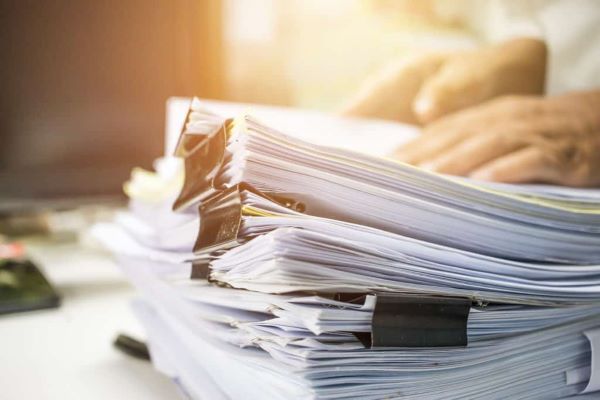Tax Record Keeping! What do I have to keep and what can I shred?
You may have recently finalised your tax return for another financial year and are wondering how long you should keep your tax records for before they can be shredded. This is a common and important question we are often asked by our clients. Another question we often hear is whether such records need to be originals or if a digital or photocopy would suffice.

Usually individual taxpayers should keep records for five years from the date of lodging their tax return, however there are circumstances which call for records to be kept for longer, examples of these include:
Decline in value assets
Often individual taxpayers will purchase assets for use in their employment and want to claim a tax deduction for these items. Such assets may include office equipment, furniture or a motor vehicle if they are required to travel for work. These items are generally not fully tax deductible in the year they are purchased, instead requiring the taxpayer to depreciate them over several years. For record-keeping purposes, details about the purchase of these assets must be kept for five years from the date of making the final claim for decline in value.
Capital gains tax assets
Records for the purchase of capital gains tax assets must be kept for five years after it is certain that no capital gains tax event can happen. Where a property is purchased that is not a main residence, purchase records will need to be kept for the entire period of owning the asset. Similarly, assets such as shares or managed funds will require purchase records kept until five years after they are sold. Purchase documentation for a taxpayer’s home does not need to be kept, however if the home ceases to be a taxpayer’s primary residence, it is vital that they speak to their Accru adviser to understand the record keeping requirements from that date forward.
Ways to keep records
Taxpayers have a choice in how they wish to keep records, including original paper records, photocopies or electronic records. It is important that any record that has been copied or scanned is done so carefully so that it represents a clear copy of the original record.
Electronic copies of records are beneficial for reducing the amount of paperwork required and also ensures copies are kept if records are accidentally lost or destroyed through burglary or fire. We recommend keeping a back-up of any tax records if they are stored electronically either via a cloud back-up system or external hard drive to prevent the records from being inaccessible.
Taxpayers should remember that all tax records are required to be kept for five years from the date of lodging their tax return. Any capital assets that are purchased require the taxpayer to hold onto purchase documentation for the duration of ownership. Luckily, records do not have to be kept in paper form, as long as they have been scanned clearly, an electronic copy of original records is acceptable.
If you require further information or still aren’t sure what tax records you need to keep, contact one of our Tax Specialists today on (03) 9835 8200. Alternatively, you can complete your details below and we’ll be in touch.
